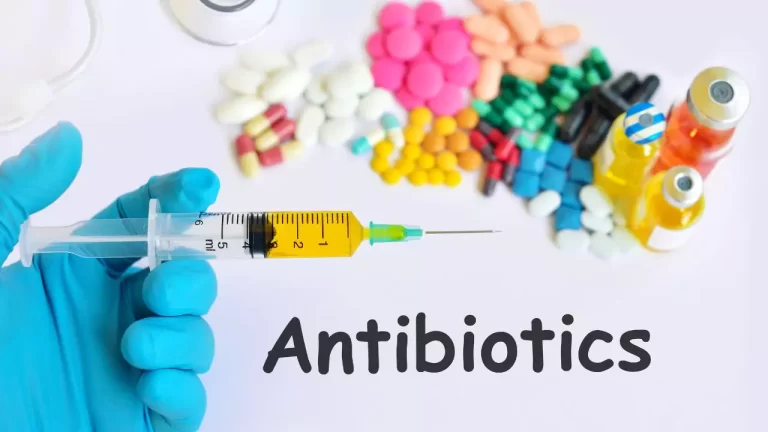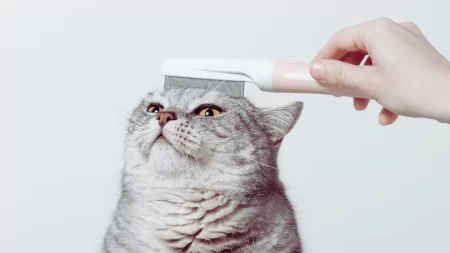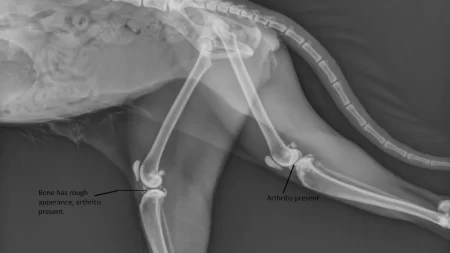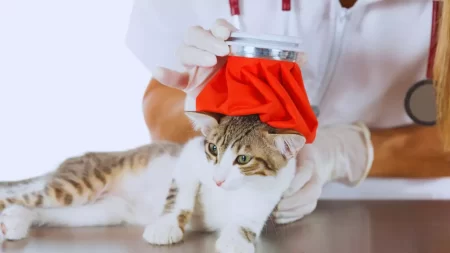The typical treatment duration for a cat on antibiotics, specifically amoxicillin, is around seven to ten days, depending on the severity of the infection. It is crucial to administer the medication at the prescribed dosage for the entire duration recommended by your veterinarian, typically 10 days to 2 weeks.
Even if the cat shows signs of improvement, discontinuing the antibiotics prematurely may lead to unresolved infections. Continued overuse of antibiotics can have long-term consequences, reducing their effectiveness in treating bacterial infections in both humans and animals.
Understanding Antibiotics for Cats
What are Antibiotics?
Antibiotics are drugs that kill or inhibit the growth of bacteria, which are microscopic organisms that can cause infections in humans and animals. There are many different types of antibiotics, each with a specific mechanism of action and spectrum of activity against different kinds of bacteria.
How Do They Work in Cats?
Antibiotics work in cats by entering their bloodstream and reaching the site of infection, where they interfere with the vital functions of the bacteria, such as cell wall synthesis, protein synthesis, DNA replication, or metabolism. By doing so, they either kill the bacteria or prevent them from multiplying, allowing the cat’s immune system to clear the infection.
Factors That Affect the Duration of Antibiotic Treatment
Type of Infection
The type of infection determines the choice of antibiotic and the duration of treatment. Some infections are caused by specific bacteria that are sensitive to certain antibiotics, while others are caused by a mixture of bacteria that may require a combination of antibiotics. Some infections are localized in a specific organ or tissue, while others are systemic and affect the whole body. Some infections are acute and resolve quickly, while others are chronic and persist for a long time.
The Severity of the Infection
The severity of the infection affects the dose and frequency of the antibiotic administration, as well as the duration of treatment. Severe infections may require higher doses, more frequent administrations, or longer courses of treatment than mild or moderate infections. Severe infections may also require hospitalization, intravenous injections, or additional supportive care, such as fluids, electrolytes, or pain relief.
Age and Overall Health of the Cat
The age and overall health of the cat influence the metabolism and elimination of the antibiotic, as well as the response to the treatment. Younger and healthier cats may metabolize and eliminate the antibiotic faster than older and sicker cats, which means they may need shorter courses of treatment. However, younger and healthier cats may also have stronger immune systems, which means they may need lower doses or less frequent administrations of the antibiotic. Older and sicker cats may have weaker immune systems, which means they may need higher doses or more frequent administrations of the antibiotic, but they may also have impaired kidney or liver function, which means they may need longer courses of treatment to avoid toxicity.
Type of Antibiotic Prescribed
The type of antibiotic prescribed depends on the type and severity of the infection, as well as the age and overall health of the cat. Different antibiotics have different pharmacokinetics, which means they have different rates of absorption, distribution, metabolism, and elimination in the body. Some antibiotics are absorbed quickly and reach high concentrations in the blood, while others are absorbed slowly and reach low concentrations in the blood. Some antibiotics are distributed widely and reach various tissues and organs, while others are distributed narrowly and reach only specific tissues and organs. Some antibiotics are metabolized rapidly and eliminated quickly, while others are metabolized slowly and eliminated slowly. These factors affect the duration of the antibiotic’s effect and the duration of the treatment.
Common Antibiotics for Cats and Their Duration
Here are some examples of common antibiotics for cats and their typical duration of treatment, based on the information from VetInfo and PetMD:
- Amoxicillin: This is a broad-spectrum antibiotic that works against many types of bacteria, especially gram-positive ones. It is usually given orally, twice a day, for 7 to 10 days.
- Clindamycin: This is a narrow-spectrum antibiotic that works against some types of bacteria, especially anaerobic ones. It is usually given orally, once or twice a day, for 7 to 14 days.
- Cephalexin: This is a broad-spectrum antibiotic that works against many types of bacteria, especially gram-positive ones. It is usually given orally, twice a day, for 10 to 14 days.
- Doxycycline: This is a broad-spectrum antibiotic that works against many types of bacteria, especially gram-negative ones. It is usually given orally, once or twice a day, for 7 to 14 days.
Potential Side Effects of Long-Term Antibiotic Use in Cats
Long-term antibiotic use in cats may cause some side effects, such as:
- Gastrointestinal issues: Antibiotics may disrupt the normal balance of bacteria in the cat’s digestive system, leading to diarrhea, vomiting, loss of appetite, or abdominal pain. To prevent or reduce these symptoms, antibiotics should be given with food, probiotics, or prebiotics, and the cat should have access to fresh water at all times.
- Allergic reactions: Antibiotics may trigger an allergic reaction in some cats, causing skin rashes, itching, swelling, difficulty breathing, or anaphylaxis. To prevent or treat these symptoms, antibiotics should be given with antihistamines, corticosteroids, or epinephrine, and the cat should be monitored closely for any signs of distress.
- Antibiotic resistance: Antibiotics may induce resistance in some bacteria, making them harder to kill or inhibit. To prevent or delay this phenomenon, antibiotics should be given only when necessary, at the correct dose and frequency, and for the appropriate duration. The cat should also complete the entire course of treatment, even if the symptoms improve or disappear, and the antibiotic should not be shared with other cats or animals.
- Organ damage: Antibiotics may cause damage to some organs, such as the kidney or liver, especially if they are given for a long time, at a high dose, or in combination with other drugs. To prevent or detect this problem, antibiotics should be given with caution, the cat should be tested regularly for kidney or liver function, and the antibiotic should be stopped or adjusted if any signs of toxicity appear.







